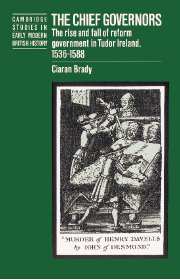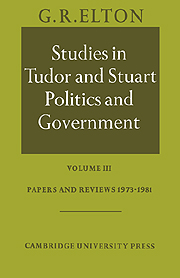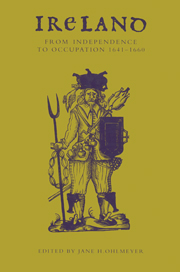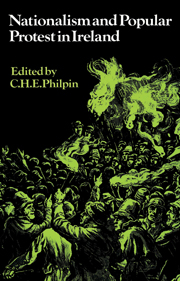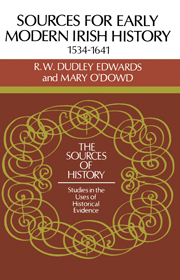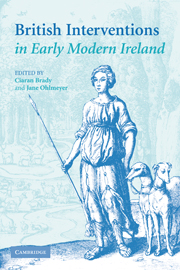The Chief Governors
This book offers a fundamental critique of conventional views of sixteenth-century Irish history that have stressed the centrality of colonization and military confrontation. It argues that reform rather than conquest was the aim of Tudor policy-makers, but shows that the immense difficulties faced by the reformers in pursuing their objectives forced them to make administrative innovations that ultimately contradicted and undermined their original policy.
- Original interpretation of Irish history in the age of the Tudors
- Contribution to the debate on the practical applications of Tudor ideology
- A new perspective on general problems of policy-making and administration in the early modern period
Reviews & endorsements
"...this book is exceedingly well-documented, clearly written, and purposefully executed...it must be read as an important restatement of the `pattern' of governance in mid-Tudor Ireland." American Historical Review
"His conclusions and ideas are sound and well-supported by primary documentation and exhaustive references....This book is a provocative and challenging work that unquestionably fulfills the intention of the Cambridge Historical Series." Irish Literary Supplement
"...its finely crafted arguments are an important contribution to the study of multi-national kingdoms in the early modern period and of the British Isles in particular." The Historian
"...our perception of Ireland's history during the second half of the sixteenth century will have to be revised." Canadian Journal of History
"This scholarly study will be useful to advanced students of Irish history..." Choice
"...the argument is bold and iconoclastic indeed....Brady masterfully weaves together the complex and volatile political interaction between the colonial governors and the Old English magnates of Ireland....an excellent study on an underexplored area of early modern history....will certainly force early modern Irish historians to rethink some of the most basic questions of the Tudor period. Without question, The Chief Governors is one of the most important studies of early modern Ireland to appear in recent years, and it is highly recommended not only for specialists in the field, but also for anyone interested in gaining some interesting perspectives on the nature of political reform and the implementation of colonial rule during the early modern period." Samantha A. Meigs, Sixteenth Century Journal
"Chief Governors marks a definite advance in the long-running debate on the nature of Tudor government in Ireland." Padraig Lenihan,Law and History Review
Product details
March 2011Adobe eBook Reader
9780511885396
0 pages
0kg
This ISBN is for an eBook version which is distributed on our behalf by a third party.
Table of Contents
- Preface
- Acknowledgements
- Abbreviations
- Prologue: Ireland in the wake of the Kildare rebellion, 1536
- Part I. The Course of Reform Government, 1536–1578:
- 1. Reform as process: the viceroyalties of Lord Leonard Grey and Sir Anthony St Leger, 1536–1547
- 2. Ireland and the mid-Tudor crisis, 1547–1556
- 3. Reform by programme: the viceroyalties of the earl of Sussex, 1556–1565
- 4. Reform on contract: the viceroyalties of Sir Henry Sidney, 1566–1578
- Interlude: government in Ireland, 1536–1579
- Part II. The Impact of Reform Government, 1556–1583:
- 5. Reform government and the feudal magnates
- 6. Reform government and the community of the Pale
- 7. Reform government and Gaelic Ireland
- Epilogue: reform in crisis: the viceroyalty of Sir John Perrot, 1584–1588
- Bibliography
- Index.

